Introduction
Docker containers have emerged as indispensable tools in the fast-evolving landscape of software development and deployment, providing a lightweight and efficient way to package, distribute, and run applications. This article delves into the top 20 Docker containers across various categories, showcasing their features, use cases, and contributions to streamlining development workflows.
Table of contents
Web Servers and Content Management
Web Servers
Nginx
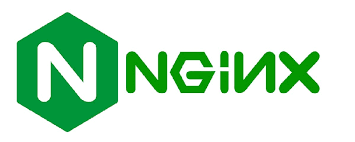
Nginx is a versatile web server and reverse proxy celebrated for its exceptional performance and scalability. Its lightweight structure and adept management of concurrent connections have made it a top choice for developers seeking efficiency. Notable features include robust load-balancing capabilities, efficient handling of static content, and advanced security features. Its applications span various functions, from serving static websites to facilitating load balancing for microservices and acting as a reverse proxy for application servers.
Apache HTTP Server
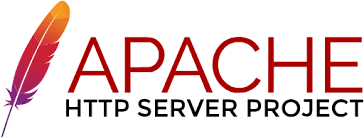
Apache HTTP Server, a trailblazer in the web server landscape, remains a steadfast option for delivering dynamic content. Renowned for its modular design and extensive configurability, it easily accommodates a wide array of applications. Its key features include comprehensive module support, exceptional configurability, and robust community backing. Its versatile applications range from hosting dynamic websites and running PHP applications to serving as a backend server for various web-based applications.
Traefik

Another docker container is Traefik. Traefik is a contemporary reverse proxy and load balancer tailored explicitly for microservices architectures. Its appeal lies in dynamic configuration and automatic service discovery, making it an optimal choice for containerized environments. Key features include automatic service discovery, seamless integration with container orchestration tools, and support for Let’s Encrypt, enabling automated provisioning of SSL/TLS certificates. Its applications range from load-balancing microservices and routing traffic based on specified rules to facilitating secure communication by automatically managing SSL/TLS certificates, making it an essential tool for modern infrastructure setups.
Content Management System
WordPress

WordPress, a dominant content management system, fuels a substantial portion of the internet. Dockerizing WordPress streamlines deployment, offering a scalable and insulated environment for content management needs. Its vast plugin ecosystem, user-friendly interface, and robust community support are key attributes. Its versatility spans from facilitating blogging and content creation to constructing business websites and overseeing online communities, making it an adaptable solution for diverse web-related endeavors.
Databases and Data Stores
Relational Databases
MySQL
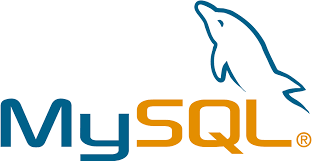
MySQL, a widely used open-source relational database, is esteemed for its speed and dependable performance. Dockerizing MySQL simplifies the configuration and management of databases across diverse applications. Its key attributes include ACID compliance, robust support for replication and clustering, and high-performance capabilities. Its applications range from serving as backend storage for web applications to managing data storage for e-commerce platforms and supporting content management systems, showcasing its adaptability for varied storage needs in different domains.
PostgreSQL
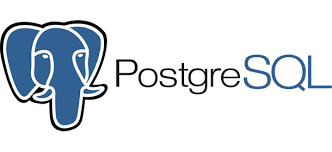
PostgreSQL stands as a robust open-source relational database, celebrated for its extensibility and strict adherence to standards. Dockerizing PostgreSQL presents a portable and replicable database environment, enabling flexibility in deployment. Key attributes include its extensibility via custom functions and operators, ACID compliance ensuring data reliability, and strong support for complex queries. Its applications extend to powering Geographic Information Systems (GIS), supporting data warehousing needs, and catering to the intricacies of financial applications, showcasing its adaptability across diverse domains that demand stringent data handling and querying capabilities.
MariaDB
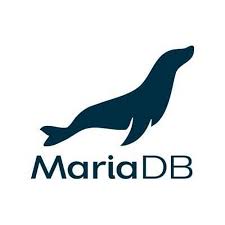
MariaDB, stemming from the MySQL lineage, prioritizes high performance and reliability. Dockerizing MariaDB ensures a uniform environment across development and production stages, fostering consistency in deployment. Notable attributes include its seamless compatibility with MySQL, high-performance storage engines, and robust support from an active community. Its applications encompass serving as transactional databases for web applications, supporting data analytics and reporting needs, and driving content management systems, showcasing its versatility across various domains requiring reliable and scalable database solutions.
Microsoft SQL Server
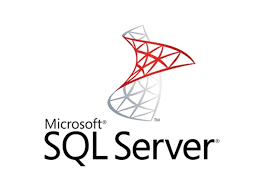
Microsoft SQL Server, a robust relational database management system, is widely used in enterprise settings. Dockerizing SQL Server streamlines deployment processes, fostering smoother collaboration within development teams. Its key strengths lie in seamless integration within the Microsoft ecosystem, offering advanced analytics and reporting functionalities and scalable architecture. Its applications span across enterprise-level applications, driving business intelligence and analytics initiatives and serving as a backbone for e-commerce platforms, showcasing its adaptability and reliability in handling diverse and complex data requirements within enterprise environments.
NoSQL Databases
MongoDB
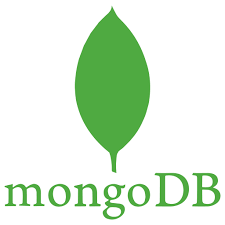
MongoDB, a prominent NoSQL database, distinguishes itself through its flexibility and scalability. Dockerizing MongoDB simplifies the establishment and administration of document-oriented databases. Key attributes include its adaptable schema design, horizontal scalability capabilities, and support for handling geospatial data. Its applications range from powering content management systems to facilitating real-time analytics and driving Internet of Things (IoT) applications, showcasing its versatility in managing various data needs across diverse domains.
Redis
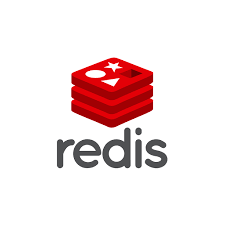
Redis, revered for its speed and straightforwardness, operates as an in-memory data store. Dockerizing Redis yields an elegant and effective solution for caching and data storage needs. Its standout features include in-memory data storage, versatile support for various data structures, and high-performance caching capabilities. Its applications span from caching in web applications to facilitating real-time analytics and serving as a reliable session storage system. It demonstrates its efficiency across diverse use cases, prioritizing swift data access and management.
Search Engine
Elasticsearch
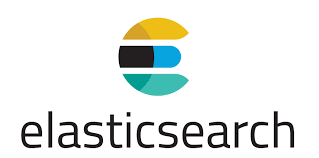
A great docker container is ElasticSearch. Elasticsearch, a distributed search and analytics engine, is used extensively for full-text search and log analysis. Dockerizing Elasticsearch streamlines the implementation of scalable search functionalities. Its key strengths lie in robust full-text search capabilities, real-time analytics support, and inherently distributed architecture. Its applications extend to log analysis and monitoring, powering enterprise search solutions and contributing to the efficiency of recommendation engines, showcasing its adaptability across diverse domains that rely on robust and scalable search capabilities.
Development and CI/CD
Programming Languages and Runtime Environments
Node.js
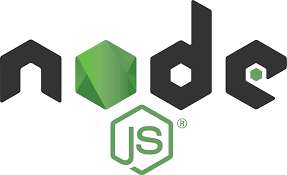
Node.js, operating as a server-side JavaScript runtime, empowers the creation of high-performance, scalable applications. Dockerizing Node.js applications establish uniformity across diverse environments. Its standout traits include non-blocking I/O operations, a vast ecosystem of modules, and swift execution speeds. Node.js finds applications in crafting scalable web applications, developing real-time systems, and constructing APIs, showcasing its versatility in powering various applications that demand efficiency and scalability.
Python
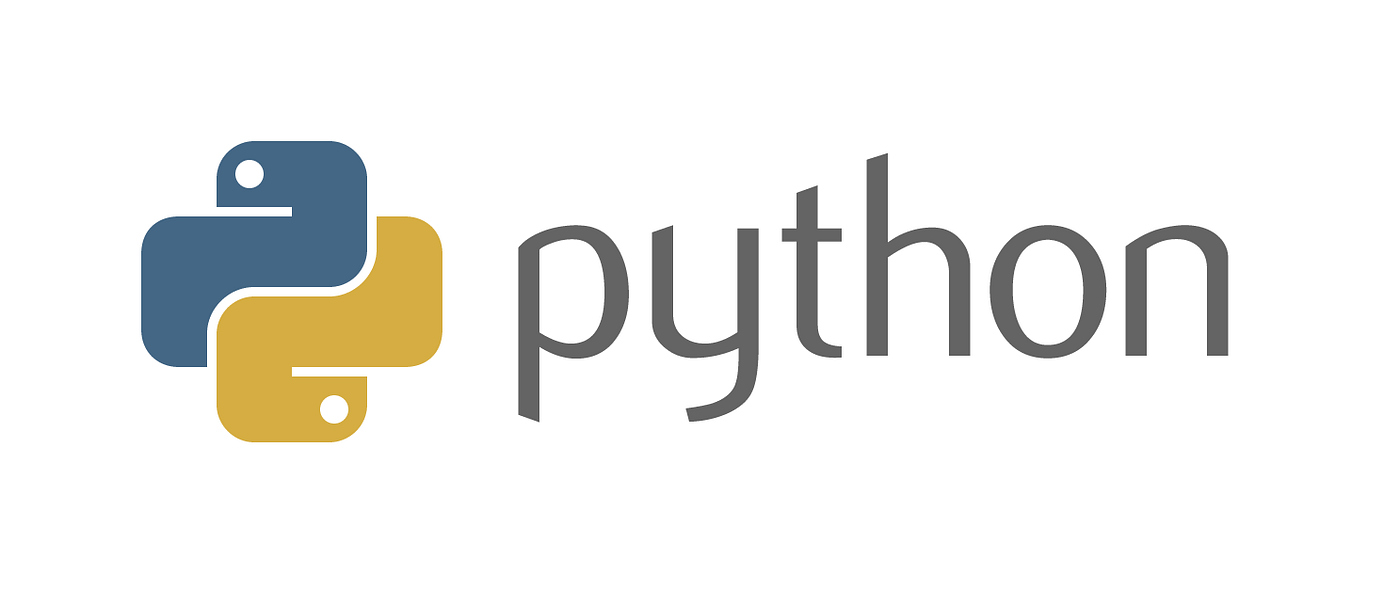
Renowned for its versatility, Python is a go-to programming language for web development, data science, and automation tasks. Dockerizing Python applications guarantees the isolation and reproducibility of dependencies. Its key strengths lie in its clear and readable syntax, an extensive standard library, and support for multiple programming paradigms. Python finds applications in various domains, from web development using frameworks like Django and Flask to powering data analysis, machine learning endeavors, and crafting automation scripts. It showcases adaptability across a broad spectrum of use cases that demand reliability and efficiency in development and deployment.
Java
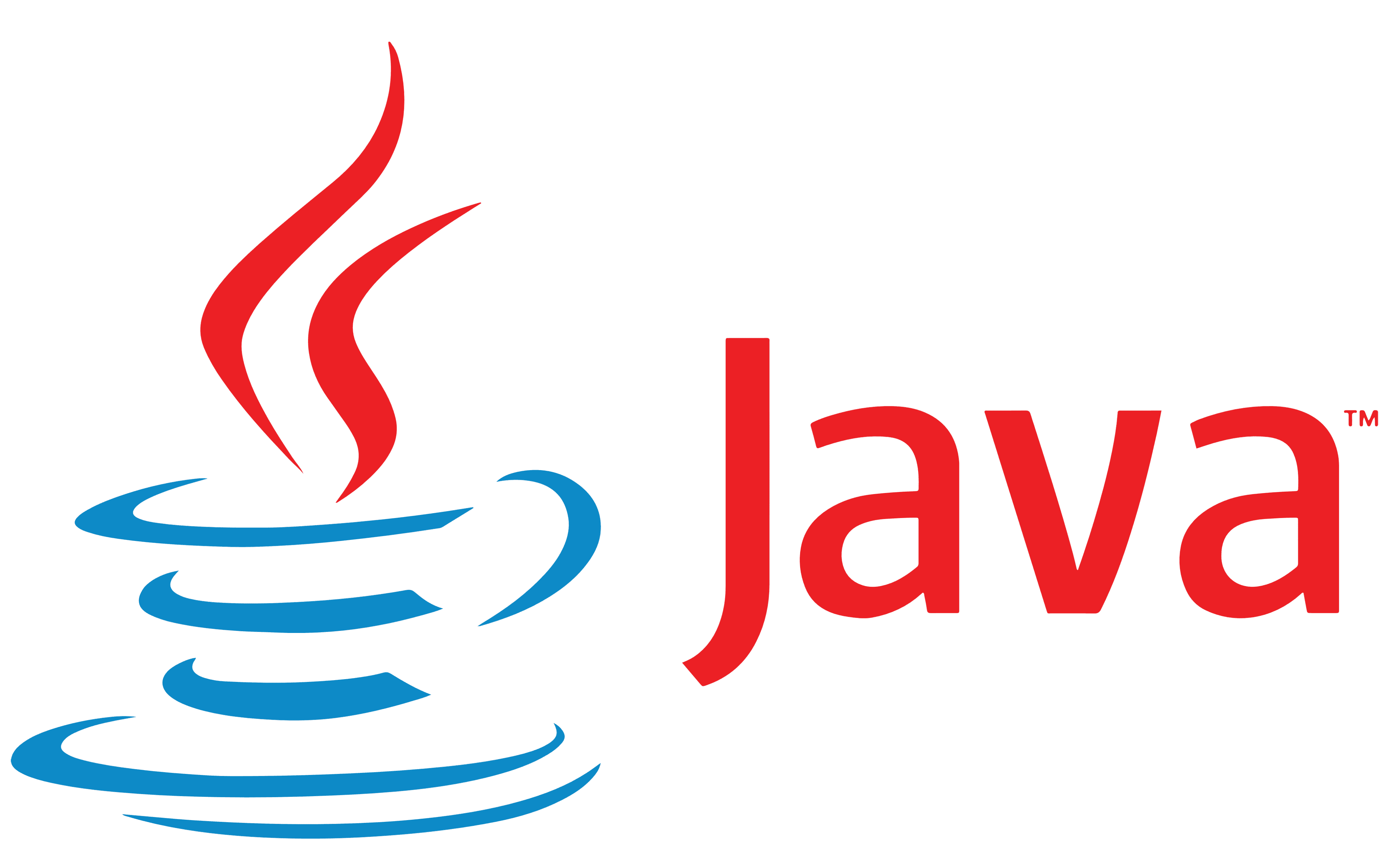
Java, recognized for its robustness and platform independence, is a staple language for enterprise-level applications. Dockerizing Java applications elevates their portability and streamlines deployment processes. Its platform independence, object-oriented programming principles, and robust ecosystem are vital attributes. Java finds extensive use in driving enterprise-level applications, serving as backend services for web applications, and facilitating big data processing tasks, showcasing its reliability and versatility across domains that require scalable and resilient solutions for complex software development and execution.
Ruby on Rails
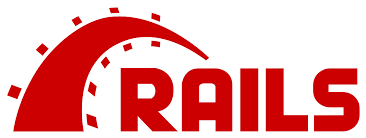
Ruby on Rails, a web application framework based on Ruby, prioritizes convention over configuration, simplifying development practices. Dockerizing Ruby on Rails applications further enhances the efficiency of both the development and deployment stages. Key highlights encompass its convention-driven approach, enabling rapid development cycles and benefiting from an engaged community. Ruby on Rails facilitates the swift creation of web applications, aids in prototyping and Minimum Viable Product (MVP) development, and serves as a strong foundation for content management systems. Its emphasis on simplicity and productivity makes it preferred for projects demanding quick iterations and robust functionality.
Version Control System
GitLab
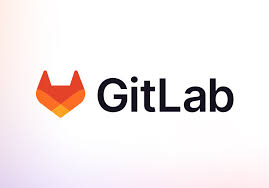
GitLab is a robust web-based Git repository manager that offers an all-encompassing solution for version control, CI/CD, and team collaboration. By dockerizing GitLab, the complexities of setting up and managing the entire DevOps process are streamlined. Its notable features include integrated CI/CD pipelines, code review and collaboration tools, and a container registry. It finds applications in various scenarios, such as version control for software projects, automated testing, deployment, and fostering collaboration among distributed development teams.
Continuous Integration/Continuous Delivery
Jenkins
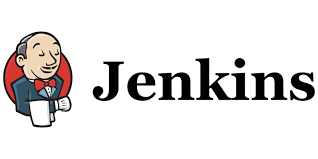
An open-source automation server, Jenkins enjoys widespread adoption in code building, testing, and deployment. By leveraging Docker, Jenkins gains scalability and can replicate build environments effortlessly. Its standout features include robust plugin support, distributed build capabilities, and the flexibility of pipeline as code. It serves critical roles in continuous integration and deployment, automated testing, and efficient building and packaging of applications.
Container Orchestration
Docker Compose
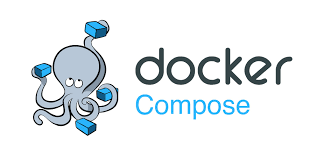
Docker Compose is a streamlined solution for orchestrating multi-container applications, simplifying the process for developers. Its functionality enables the definition and management of complex Docker applications through a single file. Key features include the management of multi-container setups, simplified orchestration, and the ability to deploy applications portably. It finds practical applications in scenarios like developing and testing multi-container applications, creating local development environments, and orchestrating microservices.
Monitoring and Observability
Metrics Collection and Alerting
Prometheus
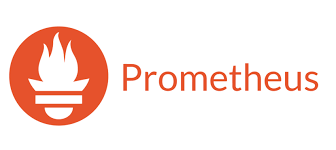
Prometheus, an open-source monitoring and alerting toolkit, prioritizes reliability and scalability. Dockerizing Prometheus streamlines the setting up of monitoring specifically tailored for containerized environments. Noteworthy features include its multi-dimensional data model, pull-based metric collection ability, and robust alerting and querying capabilities. Its applications span container and microservices monitoring, infrastructure oversight, and establishing efficient alerting and notification systems.
Visualization and Dashboarding
Grafana
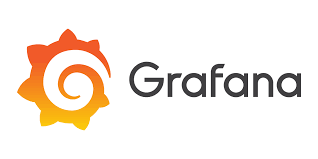
Grafana, a widely embraced open-source analytics and monitoring platform, delivers robust visualization and dashboarding functionalities. Employing Docker for Grafana simplifies the process of crafting interactive, personalized dashboards. Its strengths lie in offering rich visualizations, compatibility with diverse data sources, and robust alerting and notification features. It finds utility in monitoring and visualizing metrics, building dynamic dashboards, and fostering collaborative data exploration endeavors.
System Utilities and Management
Operating Systems
Alpine Linux
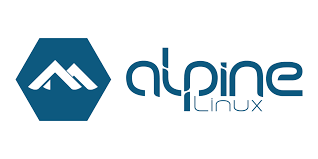
Alpine Linux stands out as a security-centric and lightweight Linux distribution. Integrating applications with Alpine Linux yields smaller image footprints and quicker container launch durations. Its core strengths are light and security-oriented, resulting in compact image sizes. It serves well in crafting minimalistic container images, achieving accelerated container startup speeds, and establishing security-focused container environments.
BusyBox
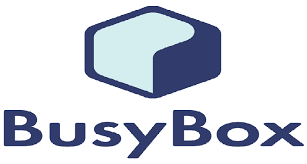
BusyBox, a versatile and lightweight Unix toolset, offers a streamlined solution for Dockerizing applications. It delivers a minimal yet comprehensive environment for executing commands. Its key attributes include a compact and adaptable toolset, minimal resource usage, and simplification of container setups. BusyBox excels in scenarios requiring lightweight containers, finds applications in embedded systems and IoT contexts, and simplifies command-line environments efficiently.
Ubuntu
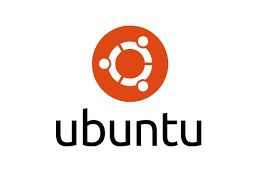
Ubuntu, a widely favored Linux distribution, stands out for its user-friendly nature and expansive software packages. Integrating applications with Ubuntu via Docker ensures compatibility across various software offerings. Its strengths lie in its broad package ecosystem, ease of use, and wide compatibility. It serves adeptly in crafting development and testing environments, ensuring compatibility with many software packages, and delivering containerized applications within a familiar Linux environment.
Caching
Memcached
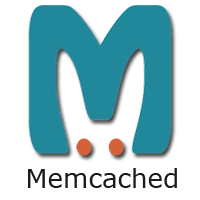
Memcached, a high-performance distributed memory object caching system, undergoes seamless deployment and scalable caching solutions through Dockerization. Its attributes encompass distributed caching capabilities, straightforward key-value storage, and high-performance outcomes. It finds practical applications in web application caching, session storage management, and acceleration of database queries, ensuring an efficient and optimized caching solution within Docker environments.
Messaging
RabbitMQ
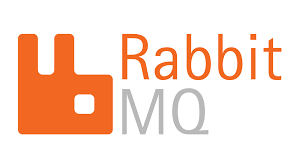
RabbitMQ is a robust and scalable message broker, pivotal in managing message queues for distributed applications. Dockerizing RabbitMQ streamlines the configuration and administration of these queues. Its key strengths encompass compelling message queuing and routing, robust scalability and reliability, and catering to various messaging patterns. RabbitMQ finds application in decoupling microservices through message queues, facilitating asynchronous communication in distributed systems, and efficiently spreading tasks while balancing workloads. Its versatility in managing communication between disparate components makes it a fundamental tool in architecting scalable and resilient distributed systems.
Docker Registry
Docker Hub
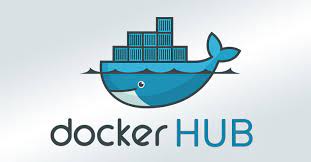
It stands as a cloud-based registry service catering to Docker containers. Leveraging Docker Hub to dockerize applications eases the dissemination and exchange of container images. Its notable aspects include a cloud-based container registry, enabling versioning and tagging container images, and incorporating collaboration functionalities. Docker Hub finds applications in storing and sharing container images, seamlessly integrating with Continuous Integration/Continuous Deployment (CI/CD) pipelines, and fostering collaborative development and distribution environments. Its capabilities streamline the container image management process, enhancing efficiency and collaboration across various application development and deployment stages.
Container Management Interface
Portainer

Portainer simplifies Docker management through its user-friendly interface, offering a seamless experience for handling containers and clusters. By Dockerizing applications with Portainer, users gain access to an intuitive web-based platform that streamlines the management of containerized environments. Its key features include a user-friendly web interface, comprehensive container and cluster management capabilities, and visualizations of containerized environments. Its applications span from simplifying Docker container management to facilitating monitoring and controlling containerized applications, fostering collaborative development, and supporting DevOps workflows.
Conclusion
In conclusion, the world of Docker containers offers diverse tools to cater to every development need. Whether you are building scalable web applications, managing databases, implementing continuous integration, or ensuring robust monitoring, the top 20 Docker containers mentioned in this article provide a solid foundation for modern software development and deployment. Embrace the power of containers and revolutionize your development workflow today.
Related
- SEO Powered Content & PR Distribution. Get Amplified Today.
- PlatoData.Network Vertical Generative Ai. Empower Yourself. Access Here.
- PlatoAiStream. Web3 Intelligence. Knowledge Amplified. Access Here.
- PlatoESG. Carbon, CleanTech, Energy, Environment, Solar, Waste Management. Access Here.
- PlatoHealth. Biotech and Clinical Trials Intelligence. Access Here.
- Source: https://www.analyticsvidhya.com/blog/2023/12/docker-containers-for-everything/



